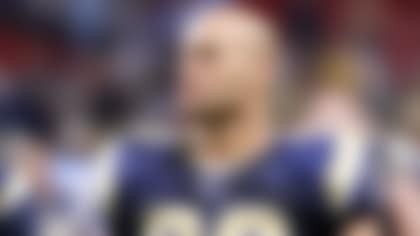NFL Evolution will feature a guest columnist every Tuesday, each with a different viewpoint of player health and safety from the youth level to pro football.
By Dr. Joseph F. Waeckerle, NFL Health Playbook columnist
As parents deal with children who suffer concussions during athletics, some of them wonder about the neurological problems that occur if the kids do not improve in 2-3 weeks. And what should parents do if this occurs?
Scientific studies and consensus documents from health care professionals with expertise in concussion care report that in more than 80 percent of cases, the student-athlete is symptom-free in 7-10 days. Approximately 10-15 percent of patients with a concussion have a more extended course of complaints that may last four weeks or more. In rare instances (approximately 1-5 percent in some reports), concussed student-athletes may experience prolonged symptoms lasting for more than one month, with some extending up to one year or more.
Certain factors influence the duration of recovery time. Most notable are age and sex differences. In general, the younger the individual, the longer the recovery period. Data also suggests that there is a sex-associated difference with females experiencing a more protracted duration of recovery. However, this observation requires further investigation to better define sex-linked complications.
A history of previous concussions appears to predispose the student-athlete to a more protracted course of recover, especially among female student-athletes and younger age groups and when the injury occurs in close proximity to the first concussion.
Although loss of consciousness and amnesia are not required criteria for a diagnosis of concussion, the presence of either may indicate a more severe injury and a correspondingly longer recovery period. A past history of migraine headaches may be associated with a greater risk a more protracted recovery.
Additionally, in recent studies concussed student-athletes with no prior history of migraines who developed a "migraine symptom complex" consisting of headaches, visual complaints, dizziness, nausea and vomiting, sensitivity to noise or light, and balance problems suffered a more prolonged recovery.
Other indicators of a more prolonged and complicated recovery process include complaints of four or more symptoms concurrently; specific complaints of fogginess, fatigue, or sleep disturbances; persistent balance problems; and any symptoms lasting longer than 10 days, most notably depression, loss in concentration ability, and short-term memory problems.
Certain other pre-existing medical conditions and medications can also complicate concussion management and recovery. Student-athletes with the diagnosis of learning disabilities or a history of depression, anxiety, panic disorders, or sleep disturbances may have symptoms similar to those associated with concussions, making evaluation at follow-up substantially more challenging.
In addition, medications, especially those prescribed for the treatment of any of the above disorders, may alter concussive signs or symptoms, adding further to the complexity of ongoing management. The unique genetic code of each person may determine, in part, the response to different types and severity of brain insults but much work needs to be done here.
During the ongoing management the concussed student-athlete or family should report any of these concerns to the attending health care professional. If concerns persist, the health care professional should consult with other concussions specialists to explore alternate management and recovery strategies.
Without a "gold standard" for diagnosis of a concussion and monitoring of progress, clinical criteria remain the benchmark for diagnosis, progress, and recovery. Recent reports utilizing sophisticated neuroimaging suggest that complete recovery at the cellular and subcellular level may not occur for a longer period post-injury than is demonstrated by the normalization of clinical criteria.
However, more work certainly needs to be done to correlate sophisticated testing with these clinical criteria. This very preliminary work does prompt caution in difficult cases. If there are any concerns regarding progress or recovery, consultation with additional concussion specialists and the prescribing of "more time" is advisable.
Dr. Joseph F. Waeckerle is clinical professor of emergency medicine at the University of Missouri-Kansas City School of Medicine. He also is editor emeritus of Annals of Emergency Medicine. He has practiced Emergency Medicine and Sports Medicine and has been a team physician at the grade school, high school, college, and profession level for over 30 years. He currently serves on the NFL Head, Neck, and Spine Injury Committee and the Mackey White Brain Injury Committee of the NFL Players Association.



